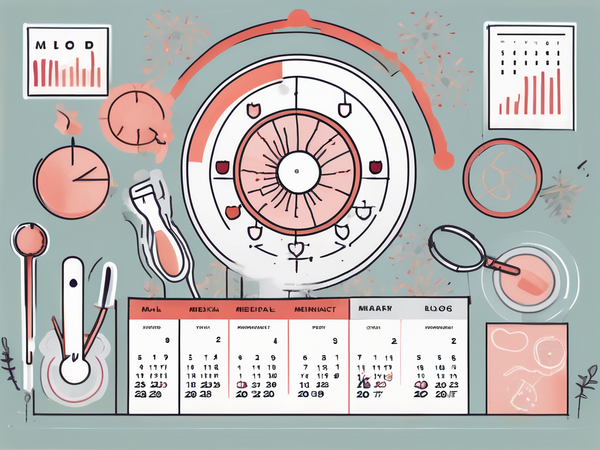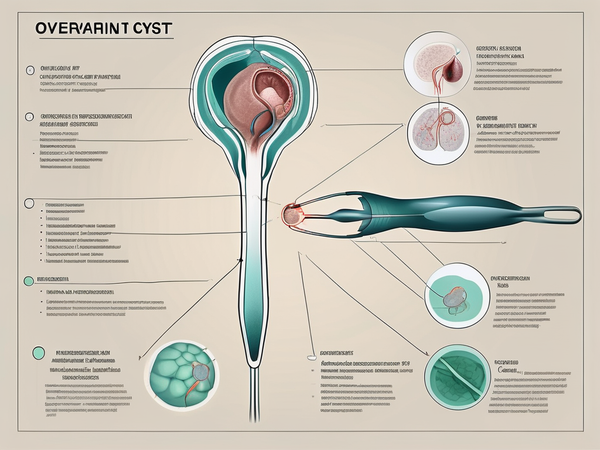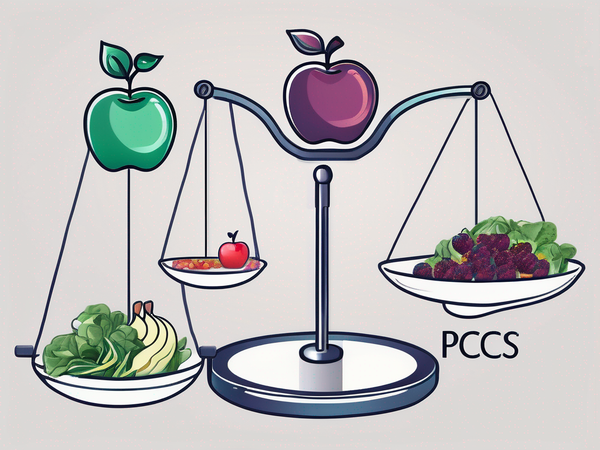Top Foods to Manage PCOS
PCOS, which stands for Polycystic Ovary Syndrome, is a hormonal disorder that affects many women worldwide. It is characterized by the presence of cysts on the ovaries, irregular menstrual cycles, and high levels of androgen hormones such as testosterone. In addition to these physical symptoms, PCOS can also lead to weight gain, insulin resistance, and fertility issues.
Understanding PCOS and Its Dietary Impact
What is PCOS?
PCOS is a complex condition that affects the endocrine system. It is thought to be caused by a combination of genetic, environmental, and lifestyle factors. While the exact cause of PCOS is still unknown, it is believed that insulin resistance and hormonal imbalances play a significant role in its development.
Women with PCOS often experience irregular menstrual cycles, excess androgen levels, and multiple cysts on their ovaries. These symptoms can lead to fertility issues, weight gain, acne, and hair growth in unwanted areas. Managing PCOS requires a comprehensive approach that includes lifestyle modifications, medication, and dietary changes.
The Role of Diet in Managing PCOS
Diet plays a crucial role in managing PCOS symptoms and improving overall health. Making the right food choices can help regulate insulin levels, reduce inflammation, and maintain a healthy weight, all of which are essential for managing PCOS.
A balanced PCOS diet should focus on whole foods such as fruits, vegetables, and lean proteins. Whole grains and fiber-rich foods can help stabilize blood sugar levels and reduce insulin resistance. Additionally, incorporating anti-inflammatory foods like fatty fish, nuts, and seeds can help decrease inflammation in the body, which is often elevated in individuals with PCOS.
Top Foods to Manage PCOS
Benefits of Whole Grains
Whole grains are one of the best foods for PCOS. Grains such as quinoa, brown rice, and whole-wheat bread are excellent choices for women with PCOS. These grains are rich in fiber, which helps regulate blood sugar levels and improve insulin sensitivity. Additionally, whole grains are packed with essential nutrients such as vitamins, minerals, and antioxidants.
When it comes to whole grains, the variety is endless. You can explore options like barley, bulgur, farro, and oats to add diversity to your diet. Each type of whole grain offers a unique set of nutrients and flavors, making your meals not only nutritious but also delicious.
The Importance of Lean Proteins
Lean proteins such as chicken, turkey, fish, tofu, and legumes are essential for women with PCOS. These foods provide high-quality protein while being low in saturated fat. Protein helps stabilize blood sugar levels, promote satiety, and support muscle growth and repair.
When choosing lean proteins, opt for organic and grass-fed options whenever possible. These choices are not only better for your health but also for the environment. Incorporating a variety of lean proteins into your diet ensures that you are getting a wide range of amino acids essential for various bodily functions.
Fruits and Vegetables: Your Best Friends
Fruits and vegetables are nutritional powerhouses that should be a part of every PCOS-friendly diet. They are low in calories and high in fiber, vitamins, minerals, and antioxidants. Additionally, fruits and vegetables have a low glycemic index, meaning they have minimal impact on blood sugar levels.
When it comes to fruits and vegetables, aim to eat a rainbow of colors to ensure you are getting a wide range of nutrients. Incorporating seasonal produce not only adds variety to your meals but also exposes you to different phytonutrients that support overall health. Don't be afraid to try new fruits and vegetables to keep your meals exciting and your body nourished.
Different Diets for PCOS
The Low GI Diet and PCOS
The Low Glycemic Index (GI) diet focuses on consuming foods that have a low impact on blood sugar levels. This diet can be beneficial for women with PCOS as it helps regulate insulin levels and promote weight loss. Foods with a low GI include whole grains, legumes, non-starchy vegetables, and most fruits. They are one of the safest and best foods for PCOS.
By incorporating the Low GI Diet into their lifestyle, individuals with PCOS may experience improved insulin sensitivity, which can help in managing symptoms such as irregular periods and infertility. Additionally, the emphasis on whole, unprocessed foods in this diet can provide essential nutrients and promote a balanced approach to eating.
The Anti-inflammatory Diet: A Solution for PCOS?
Inflammation is believed to play a role in the development and progression of PCOS. The anti-inflammatory diet focuses on consuming foods that help reduce inflammation in the body. This diet emphasizes fruits, vegetables, healthy fats, and lean proteins while limiting processed foods, refined sugars, and saturated fats.
Individuals with PCOS may find relief from symptoms such as acne and hirsutism by following an anti-inflammatory diet, as certain foods like berries, fatty fish, and nuts have been shown to have anti-inflammatory properties. Moreover, reducing the intake of pro-inflammatory foods can potentially improve overall health and well-being in those with PCOS.
DASH Diet: An Overview and Its Benefits for PCOS
The DASH (Dietary Approaches to Stop Hypertension) diet is a well-known eating plan that is beneficial for overall health and can also be beneficial for women with PCOS. The DASH diet emphasizes fruits, vegetables, whole grains, lean proteins, and low-fat dairy products while limiting sodium, saturated fat, and added sugars.
For individuals with PCOS, following the DASH diet can not only help in managing blood pressure and reducing the risk of heart disease but also in improving insulin sensitivity and promoting weight loss. The focus on nutrient-dense foods in the DASH diet can provide essential vitamins and minerals that are important for hormonal balance in individuals with PCOS.
Foods to Manage PCOS
The Power of Omega-3 Fatty Acids
Omega-3 fatty acids, found in fatty fish like salmon, mackerel, and sardines, have been shown to have numerous health benefits for women with PCOS. These fatty acids help reduce inflammation, regulate hormones, improve insulin sensitivity, and promote heart health.
In addition to fatty fish, plant-based sources of omega-3 fatty acids include flaxseeds, chia seeds, and walnuts. These sources provide alpha-linolenic acid (ALA), a type of omega-3 fatty acid that can be converted into the more potent forms, eicosapentaenoic acid (EPA) and docosahexaenoic acid (DHA), in the body. Including a variety of omega-3 sources in your diet can ensure you are getting an adequate intake of these beneficial fatty acids.
The Role of Dietary Fiber
Dietary fiber is an essential nutrient for women with PCOS as it helps regulate blood sugar levels and promote healthy digestion. Including foods rich in fiber, such as whole grains, fruits, vegetables, and legumes, can help manage PCOS symptoms and promote overall well-being.
Fiber not only aids in digestion and blood sugar control but also contributes to a feeling of fullness and satiety, which can be beneficial for weight management in women with PCOS. Soluble fiber, found in foods like oats, legumes, and apples, forms a gel-like consistency in the gut, slowing down digestion and promoting stable blood sugar levels.
Why You Should Include Anti-oxidant Rich Foods
Antioxidants are compounds that help protect cells from oxidative damage caused by free radicals. Including antioxidant-rich foods in your diet, such as berries, dark leafy greens, nuts, and seeds, can help reduce inflammation and improve overall health in women with PCOS.
In addition to the mentioned foods, other antioxidant powerhouses include colorful fruits like oranges, kiwis, and pomegranates, as well as vegetables like bell peppers, spinach, and tomatoes. These foods provide a range of antioxidants, such as vitamin C, vitamin E, and beta-carotene, which work together to combat oxidative stress and support a healthy immune system.
Foods to Avoid During PCOS
- Processed Foods: These foods tend to be high in added sugars, unhealthy fats, and other artificial ingredients that can worsen PCOS symptoms.
- Refined Carbohydrates: White bread, white rice, and sugary snacks should be limited as they can spike blood sugar levels and contribute to weight gain.
- Dairy Products: Some women with PCOS may be sensitive to dairy products, as they can increase insulin levels and promote inflammation.
- Saturated and Trans Fats: These fats should be limited as they can increase inflammation and contribute to heart disease.
- Alcohol and Caffeine: These substances can disrupt hormone balance and may worsen PCOS symptoms.
Additional Foods to Consider Avoiding:
1. High Glycemic Index Foods: Foods with a high glycemic index can cause rapid spikes in blood sugar levels, leading to insulin resistance, which is a common issue in women with PCOS. Avoid foods like sugary cereals, pastries, and candies.
2. Soy Products: While soy is a good source of plant-based protein, some studies suggest that it may interfere with hormonal balance in women with PCOS. It's recommended to limit soy products like tofu and soy milk.
Conclusion
Managing PCOS through diet is an essential aspect of treatment. By incorporating the top foods mentioned above and avoiding foods that can aggravate symptoms, women with PCOS can improve their overall health and well-being. It is important to work with a healthcare professional or registered dietitian to create a personalized eating plan that meets individual needs and goals. Remember, small dietary changes can make a significant difference in managing PCOS and promoting a healthier lifestyle.

























